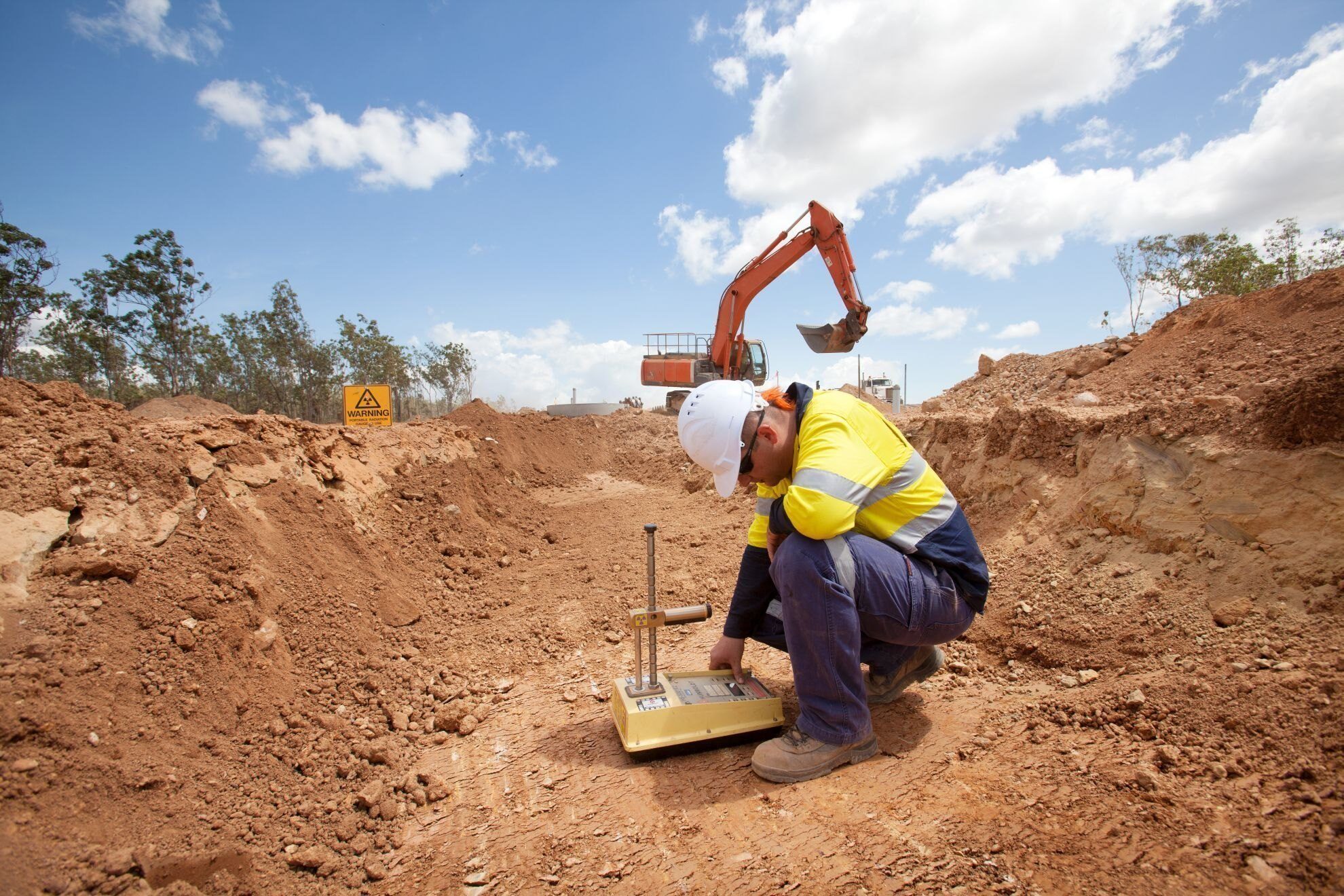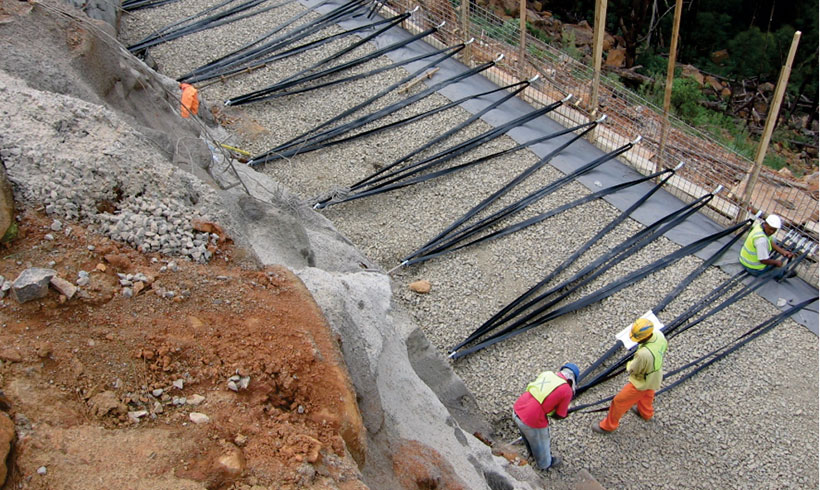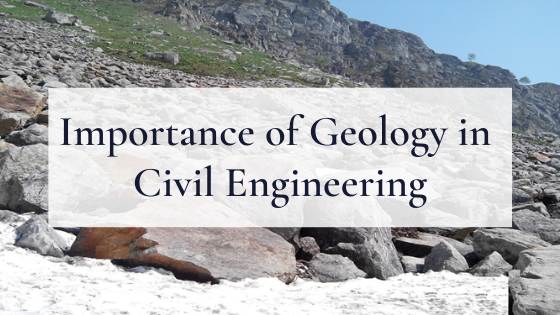What Does Geotechnical Engineering For Construction Projects Do?
What Does Geotechnical Engineering For Construction Projects Do?
Blog Article
The 45-Second Trick For Geotechnical Engineering For Construction Projects
Table of ContentsThe Buzz on Geotechnical Engineering For Construction ProjectsExcitement About Geotechnical Engineering For Construction ProjectsThe 8-Minute Rule for Geotechnical Engineering For Construction ProjectsNot known Details About Geotechnical Engineering For Construction Projects Excitement About Geotechnical Engineering For Construction Projects
Throughout the investigation, it is essential to pierce at the required deepness and the required number of openings as per the recommendation of the Canadian Structure Layout requirement. Occasionally, the owner could save some Geotechnical Investigation expense yet end up investing greater than the prepared for throughout the construction price.The obligations of the geotechnical specialist include offering product screening for construction support. Geotechnical Engineering for Construction Projects. Geotechnical designers analyse all the field test reports to guarantee that building is going on as per the project specification. Throughout building, a confirmatory examination for soil compaction is done on-site to guarantee that no future settlement happens
After the concrete is put -7 days and 28 days- examinations are performed on concrete examples gathered from the site to ensure that the concrete poured meets the design standard. Asphalt core is taken after the Asphalt is laid and compacted to validate that it fulfills the layout criterion. All laboratory examination records are analysed by the Geotechnical Engineer to make certain that it satisfies the project requirements.
How Geotechnical Engineering For Construction Projects can Save You Time, Stress, and Money.

Geotechnical design plays a critical duty in guaranteeing the stability of construction projects. Discover how it influences design and total job success. Geotechnical design is a vital branch of civil design that focuses on recognizing the behaviour of earth products, such as soil and rock. It entails analysing subsurface problems to make sure that a building's structure or facilities is stable and safe and secure.

For a reliable foundation and a smooth building and construction process, depend offer the experience you need. Call to get specialist suggestions and geotechnical solutions tailored to your next task.
The Best Guide To Geotechnical Engineering For Construction Projects
When embarking on a land advancement job, recognizing the ground beneath your feet is as important as the frameworks you plan to develop above it. Our Geotechnical Engineering group analyse the ground, ensuring it is suitable for the suggested growth while offering you with the info needed to satisfy your job objectives.
Geotechnical Engineering checks out the formation of the ground, as it is the structure obstructs for all projects. Where frameworks need to be designed with respect to the ground problems; ground problems (e.g., soft ground) might need strengthening depending on the size of the desired framework. Before building, you need to find out about the groundwater, soil structure, and liquefaction probability of your land.
For websites that are not connected on the neighborhood authority facilities additional website investigations would certainly be needed to supply technical inputs for on-site visit here stormwater and wastewater. We have actually experienced Geotechnical Designers based in each office, supporting your geotechnical requirements across the country. Get to out to us to go over you can find out more how we can sustain your next task.
These records are customized to meet the specific requirements of a project and consist of design specifications and guidance for the construction of an array of manufactured frameworks. As providing consultancy services covering locations such as slope stability and load-bearing abilities for different materials, these engineers embark on study and growth activities to improve approaches, tools, products knowledge and analysis covering whole lifecycles.
Geotechnical Engineering For Construction Projects Things To Know Before You Buy

Nonetheless, prices of pay typically boost as your understanding and abilities grow, with guidelines indicating a graduate starting salary of between 18,000 and 28,000 per year in the UK. This rises to 26,000 to 36,000 with a few years of experience and after that reaching 40,000 to 60,000+ for senior, chartered or master engineers.
However, with the best application it is possible to grasp the occupation and gain access to a challenging yet satisfying and important profession. A rock hound would require to re-train to become a geotechnical designer, although there is lots of cross-over in between the 2 careers, which can make this much easier - Geotechnical Engineering for Construction Projects. Rock hounds need to have an understanding of soils, rocks and various other materials from a scientific viewpoint, while geotechnical designers tale their expertise of issues such as dirt and rock mechanic, geophysics and hydrology and use them to engineering and ecological jobs
When beginning, these designers will certainly have a tendency to service much less intricate projects, accumulating knowledge and experience prepared for more tough work later on. Geotechnical engineers have a tendency to be experts in certain areas as they grow in experience, concentrating on particular facilities such as trains, roads or water. These engineers also linked here collaborate with renewable resource, offshore and onshore oil and gas, nuclear power, and a lot more.
Geotechnical Engineering For Construction Projects Fundamentals Explained
The time taken to become a geotechnical engineer relies on where you are based, where you research and what level of education and learning you intend to achieve prior to getting in the workplace. Are you going to check out an instruction, take a college level or service towards a Master's or PhD? Generally-speaking it takes 3-4 years to reach the fundamental demands to start an occupation as a geotechnical engineer.
These operations enable professionals to evaluate a host of soil mechanics including weight, porosity, void-to-solid fragment proportion, permeability, compressibility, optimum shear stamina, bearing ability and contortions. If the structure requires a deep structure, engineers will make use of a cone infiltration test to approximate the quantity of skin and end bearing resistance in the subsurface.
When assessing an incline's equilibrium of shear anxiety and shear stamina, or its capacity to stand up to and undertake movement, rotational slides and translational slides are generally taken into consideration. Rotational slides fail along a curved surface, with translational slides happening on a planar surface. An expert's goal is to establish the conditions at which an incline failure can happen.
Commonly, findings recommend that a website's soil should be dealt with to improve its shear toughness, tightness and permeability prior to design and building and construction. When it comes time to outline structure plans, professionals are significantly concentrated on sustainability, even more specifically just how to reduce a structure's carbon impact. One strategy has actually been to replace 20 percent of a structure's concrete with fly ash, a waste item from coal fire nuclear power plant.
Report this page